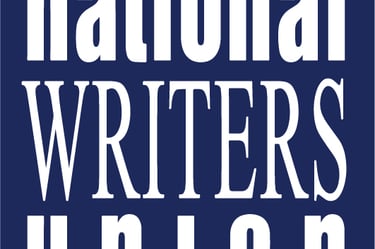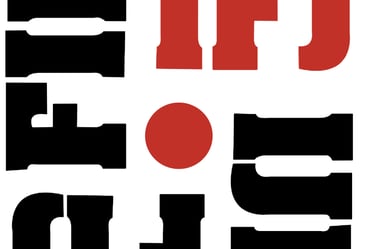The decision on whether Russian athletes will be allowed to participate in the 2024 Olympic Games is a complex and multifaceted one. The controversy surrounding the involvement of Russian athletes in international sporting events stems from the widespread allegations of state-sponsored doping that emerged in recent years.
The International Olympic Committee (IOC) has been under immense pressure to take a strong stance on the matter and ensure that the integrity of the Olympic Games is upheld. In response to these allegations, the IOC implemented a series of measures to address the issue, including the establishment of the Independent Testing Authority (ITA) and the creation of a specific framework for the participation of Russian athletes in international competitions.
The ITA was tasked with conducting independent and comprehensive testing of Russian athletes to determine their eligibility to compete in the Olympic Games. This move was seen as a step in the right direction towards ensuring fair play and maintaining the credibility of the Games. However, the decision to allow Russian athletes to participate in the 2024 Olympics has been met with widespread ridicule and skepticism.
Critics argue that the IOC's decision is a mere attempt to appease Russia and avoid a potential boycott of the Games. They believe that the measures put in place by the IOC are not stringent enough to address the magnitude of the doping scandal that has plagued Russian sports. They argue that allowing Russian athletes to compete sends a message that cheating will be tolerated and undermines the efforts of clean athletes who have trained tirelessly to compete on a level playing field.
On the other hand, proponents of the IOC's decision argue that a blanket ban on Russian athletes would be unfair to those who have not been implicated in the doping scandal. They believe that it is crucial to distinguish between athletes who have been found guilty of doping and those who have not. They argue that a collective punishment would be unjust and would undermine the principles of fairness and due process.
In light of the ongoing controversy, it is clear that the decision on Russian athletes' participation in the 2024 Olympic Games is not a simple one. The IOC must carefully weigh the concerns of clean athletes, the credibility of the Games, and the need for a fair and transparent process. Ultimately, the decision will have far-reaching implications for the future of international sports and the fight against doping. The world will be watching closely as the IOC makes its final determination on this contentious issue.
The IOC's Attempt to Please Everyone
The IOC's decision regarding the participation of Russian athletes in the upcoming Olympic Games in Paris has been widely criticized for being both ridiculous and unconvincing. Despite the IOC's attempts to find a middle ground, the final verdict is clear - there will be no Russian national team in the traditional sense at the 2024 Games. The controversy surrounding Russia's state-sponsored doping scandal has cast a dark shadow over the country's sporting reputation, leading to a series of sanctions and bans. In an effort to address the issue while still allowing clean athletes to compete, the IOC has implemented a complex set of rules and regulations. These measures aim to ensure that only athletes who have undergone rigorous testing and are not implicated in any doping scandals are able to participate. However, the implementation of these rules has been met with widespread criticism and skepticism. Critics argue that the IOC's decision to allow individual Russian athletes to compete under a neutral flag undermines the integrity of the Games. They argue that the IOC's attempts to please everyone have resulted in a compromise that satisfies no one. By allowing Russian athletes to compete under a neutral flag, the IOC is essentially sending a message that cheating and doping can go unpunished. This decision not only diminishes the achievements of clean athletes but also undermines the credibility of the Olympic Games as a whole. Furthermore, the IOC's decision fails to address the systemic issues that led to the state-sponsored doping scandal in the first place. While it is important to hold individual athletes accountable for their actions, it is equally important to address the root causes of doping and implement measures to prevent future incidents. The IOC's attempt to please everyone by implementing a compromised solution only serves to perpetuate the cycle of doping and undermine the integrity of the Games. If the IOC truly wants to restore trust and credibility in the Olympic movement, it must take a stronger stance against doping and implement more stringent measures to ensure a level playing field for all athletes. Only then can the Games truly be a celebration of sport and fair competition.
No Russian National Team at the 2024 Games
Stanislav Pozdnyakov, the President of the Russian Olympic Committee, has emphasized that the Russian national team will not be present at the 2024 Olympics in Paris. This means that Russian athletes will have to determine their fate independently, without any affiliation to the state.
The decision to exclude the Russian national team from the Games has been met with mixed reactions. Some argue that it is a necessary consequence of the doping scandals that have plagued Russian sports in recent years. The International Olympic Committee (IOC) has been cracking down on doping violations, and the exclusion of the Russian team is seen as a strong message against the use of performance-enhancing drugs.
The doping scandals involving Russian athletes have been well-documented. From the state-sponsored doping program that was uncovered in 2015 to the numerous cases of individual athletes testing positive for banned substances, the integrity of Russian sports has been called into question. The IOC's decision to ban the Russian team from the 2018 Winter Olympics in Pyeongchang was seen as a significant step towards holding the country accountable for its actions.
However, there are those who argue that the exclusion of the Russian national team is an unfair punishment that undermines the principle of fair play. They argue that not all Russian athletes are guilty of doping, and that it is unjust to punish those who have trained hard and followed the rules. They believe that it would be more appropriate to impose stricter penalties on individual athletes who are found guilty of doping, rather than punishing the entire team.
The decision to exclude the Russian team from the 2024 Games also raises questions about the participation of other countries with a history of doping violations. Critics argue that if the IOC is truly committed to clean sports, it should apply the same standards to all nations, not just Russia. They believe that singling out Russia sends a message that other countries with similar issues are being given preferential treatment.
In response to the ban, Russian athletes will now have to compete as neutral athletes, without any national identity. This poses a unique challenge for them, as they will not have the same level of support and resources that come with representing their country. They will have to rely on their own determination and the support of their individual coaches and sponsors to navigate the competitive landscape.
Overall, the exclusion of the Russian national team from the 2024 Olympics in Paris is a controversial decision that has sparked debates about doping, fair play, and the role of national identity in sports. The IOC's decision reflects the organization's commitment to clean sports, but it also raises questions about consistency and fairness in enforcing anti-doping measures. As the Games approach, all eyes will be on the Russian athletes as they strive to make their mark on the world stage despite the challenges they face. The decision to exclude the Russian national team from the 2024 Olympic Games in Paris has sent shockwaves throughout the sporting world. The absence of such a powerhouse team will undoubtedly have a profound impact on the overall dynamics of the Games. The Russian athletes, known for their exceptional skills and competitive spirit, have consistently been a force to be reckoned with in various sports disciplines.
One of the major concerns that arise from this decision is the fate of the neutral athletes who are not tied to any specific country. These athletes, who have been allowed to compete under the Olympic flag in previous Games, will now face increased pressure to perform and make their mark on the Olympic stage. It will be interesting to see how they rise to the occasion and whether they can fill the void left by the absence of the Russian national team.
Furthermore, the exclusion of the Russian national team raises important questions about the role of national affiliations in athletic competitions. The Olympics have long been a platform for countries to showcase their sporting prowess and national pride. The absence of a team as prominent as Russia calls into question the significance of national affiliations and whether they should hold as much weight in determining participation in such events.
The decision regarding the participation of Russian athletes in the 2024 Olympic Games has been a contentious and polarizing topic. While the International Olympic Committee (IOC) has attempted to find a compromise by allowing neutral athletes to compete, the outcome has been met with ridicule and disbelief. Critics argue that the punishment should be more severe, while others believe that innocent athletes should not be penalized for the actions of their country's governing bodies.
The absence of the Russian national team will undoubtedly be felt throughout the Games. The Russian athletes have consistently been medal contenders in various sports, and their absence will create a noticeable void in the competition. It remains to be seen how this will shape the future of international sports and whether it will prompt a reevaluation of the rules and regulations surrounding national affiliations in athletic competitions.
In conclusion, the exclusion of the Russian national team from the 2024 Olympic Games in Paris is a decision that has far-reaching implications. It raises questions about the role of national affiliations in athletic competitions and puts the spotlight on the performance of neutral athletes. The absence of such a dominant team will undoubtedly be felt, and it remains to be seen how this will shape the future of international sports. The Olympics, once a symbol of unity and friendly competition, now find themselves at the center of controversy and debate. As the Games approach, all eyes will be on how this decision unfolds and what it means for the world of sports.






